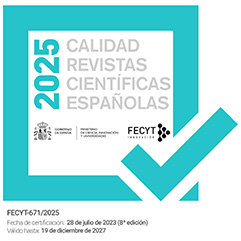Online Misogyny and the Law: Are Human Rights Protected on the Net?
DOI:
https://doi.org/10.17561/tahrj.v21.8270Keywords:
misogyny, sexism, toxic masculinity, IT-facilitated gender-based violenceAbstract
This paper opens by analysing the complexity of misogyny, sexism, and toxic masculinity. It then examines online misogyny, dissecting the many acts and behaviours that comprise this kind of digital discrimination. It considers the Gamergate scandal and demonstrates how the video game industry reinforces gender stereotypes. It closes with an analysis of efficiency and limits of legislative systems for combatting online sexism.
Downloads
References
BARAK, A. (2005). “Sexual harassment on the Internet”, Social Science Computer Review, vol. 23 num. 1, 77–92. https://doi.org/10.1177/0894439304271540.
BARKER, K., and JURASZ, O. (2019a). Misogyny as a hate crime, Routledge, London and New York.
BARKER, K., and JURASZ, O. (2019b). “Online misogyny: a challenge for digital feminism?”, Journal of International Affairs, vol. 72, num. 2, pp. 95–113.
BURGESS, M. C. R., BYARS, F. SADEGHI-AZAR, L., and DILL-SHACKLEFORD, K.E. (2017). “Online Misogyny Targeting Feminist Activism: Anita Sarkeesian and Gamergate”, The Wiley Handbook of Violence and Aggression, Peter Sturmey (Editor-in-Chief), John Wiley & Sons Ltd., Hoboken US. https://doi.org/10.1002/9781119057574.whbva006.
CLARCK, M.G., and LANGE, L. (1979). The sexism of Social and Political Theory: Women and reproduction from Plato to Nietzsche, University of Toronto Press.
CONSALVO, M. (2012). “Confronting toxic gamer culture: A challenge for feminist game studies scholars”, Ada: A Journal of Gender, New Media, and Technology, num. 1. https://doi.org/10.7264/N33X84KH.
COOLE, D. (1988). Women in Political Theory, Wheatsheaf, Sussex.
DOWLING, D. O. GOETZ, Ch., and LATHROP, D. (2020). “One Year of #GamerGate: The Shared Twitter Link as Emblem of Masculinist Gamer Identity”, Games and Culture, vol. 15 num. 8, pp. 982–1003. https://doi.org/10.1177/1555412019864857.
FARRELL, T., FERNANDEZ, M., NOVOTNY, J., and ALANI, H. (2019). “Exploring Misogyny across the Manosphere in Reddit”, 11th ACM Conference onWeb Science (WebSci ’19), June 30-July 3. https://doi.org/10.1145/3292522.3326045.
FRENDA, S., GHANEM, B., and MONTES-y-GÓMEZ, M. (2018). “Exploration of Misogyny in Spanish and English tweets”, IberEval 2018 Evaluation of Human Language Technologies for Iberian Languages Workshop.
GARCÍA-DÍAZ, J. A. et al. (2021). “Detecting misogyny in Spanish tweets. An approach based on linguistics features and word embeddings”, Future Generation Computer Systems, num. 114, pp. 506–518.
GING, D., and SIAPERA, E. (2018). “Special issue on online misogyny”, Feminist Media Studies, vol. 18 num. 4, pp. 515–524. https://doi.org/10.1080/14680777.2018.1447345.
GLICK, P., and FISKE, S. (1997), “Hostile and benevolent sexism. Mesuring ambivlent sexist attitudes toward women”, Psichology of Women Quaterly, vol. 2, num. 997, pp. 9-35.
HAIDER, S. (2016). “The Shooting in Orlando, Terrorism or Toxic Masculinity (or Both?)”, Men and Masculinities, vol. 19 num. 5, pp. 555–565. https://doi.org/10.1177/1097184X16664952.
HAN, X. (2018). “Searching for an online space for feminism? The Chinese feminist group Gender Watch Women’s Voice and its changing approaches to online misogyny”, Feminist Media Studies. https://doi.org/10.1080/14680777.2018.1447430.
HORTA RIBEIRO, M., BLACKBURN, J., BRADLYN, B., DE CRISTOFARO, E., STRINGHINI, G., LONG, S., GREENBERG, S., and ZANNETTOU, S. (2021). “The Evolution of the Manosphere Across the Web”, Proceedings of the Fifteenth International AAAI Conference onWeb and Social Media (ICWSM 2021), pp. 196–207.
HUNTER, K., and JOUENNE, E. (2021). “All Women Belong in the Kitchen, and Other Dangerous Tropes: Online Misogyny as a National Security Threat”, Journal of Advanced Military Studies, vol. 12, num. 1, pp. 57–85.
JANE, E. (2017). Misogyny online. As short (and brutish) history, SAGE, London.
JONES, C. TROTT, and VERITY WRIGHT, S. (2020). “Sluts and soyboys: MGTOW and the production of misogynistic online harassment”, New media & Society, vol. 22 num. 10, pp. 1903–1921.
KHOSRAVINIK, M., and ESPOSITO, E. (2018). “Online hate, digital discourse and critique: Exploring digitally-mediated discursive Practices of gender-based hostility”, Lodz Papers in Pragmatics, num. 14 vol. 1, pp. 45–68. https://doi.org/10.1515/lpp-2018-0003.
KUPERS, T. A. (2005). “Toxic masculinity as a barrier to mental health treatment inin prison”, Journal of Clinical Psychology, vol. 61 num. 6, pp. 13–724. https://doi.org/10.1002/jclp.20105.
MCCARTHY, B. (2002). “‘Who unlocked the kitchen?’: Online misogyny, YouTube comments and women’s professional street, skateboarding”, International Review for the Sociology of Sport, vol. 57 num. 3, pp. 362–380. https://doi.org/10.1177/10126902211021509.
MANNE, K. (2018). Down Girl. The logic of misogyny, Oxford University Press.
MOLONEY, M. E., and LOVE, T. P. (2018). “Assessing online misogyny: Perspectives from sociology and feminist media studies”, Sociology Compass. https://doi.org/10.1111/soc4.12577
OKIN, S. M. (1992). Women in Western Political Thought, Princetown University Press, New Jersey.
PAAẞEN, B., MORGENROTH, T., and STRATEMEYER, M. (2017). “What is a True Gamer? The Male Gamer Stereotype and the Marginalization of Women in Video Game Culture”, Sex Roles, num. 76, pp. 421–435. https://doi.org/10.1007/s11199-016-0678-y.
PARIKH, P., ABBURI, H. C., NIYATI GUPTA, M., and VARMA, V. (2021). “Categorizing Sexism and Misogyny through Neural Approaches”, ACM Trans. Web, vol. 15, num. 4, pp 1–31.
PÉREZ DE LA FUENTE, O. (2023). Odio, minorías y libertad de expresión, Colección Pluralismo y minorías, Dykinson, Madrid.
RICHARDSON-SELF, L. (2017). “Woman-Hating: On Misogyny, Sexism, and Hate Speech”, Hypatia, vol. 33, num. 2, pp. 256–272.
RUBIO, M., and GORDO, A. (2021). “La perspectiva tecnosocial feminista como antídoto para la misoginia”, Revista Española de Sociología, núm. 30 vol. 3. https://doi.org/10.22325/fes/res.2021.64.
SIMÕES, R. B., AMARAL, I., JOSÉ SANTOS, S. (2021). “The new feminist frontier on community-based learning. Popular feminism, online misogyny, and toxic masculinities”, European journal for Research on the Education and Learning of Adults num. 12, pp. 165–177. https://doi.org/10.25656/01:22501.
ZEINERT, P., INIE, N., and DERCZYNSKI (2021). “Annotating Online misogyny”, Proceedings of the 59th Annual Meeting of the Association for Computational Linguistics and the 11th International Joint Conference on Natural Language Processing (Volume 1: Long Papers), pp. 3181–3197.
ZUCKERBERG, D. (2018). Not all dead white men. Classics and misogyny in The Digital Age, Harvard University Press, Cambridge, Mass.
Published
Issue
Section
License
Copyright (c) 2023 Oscar Pérez de la Fuente

This work is licensed under a Creative Commons Attribution 4.0 International License.




























